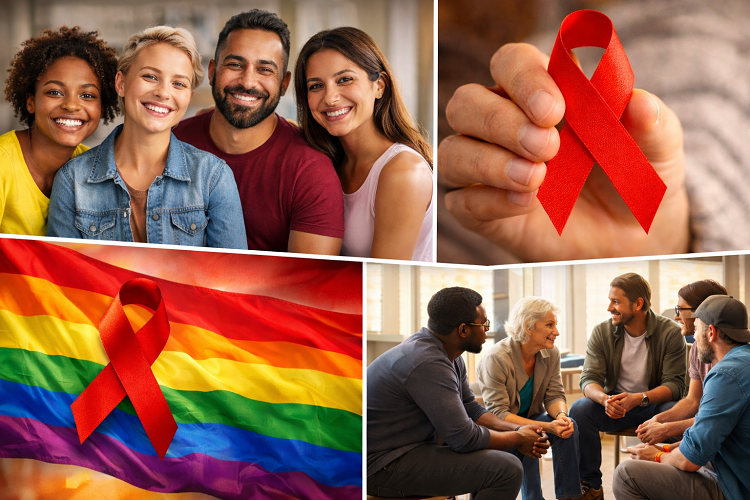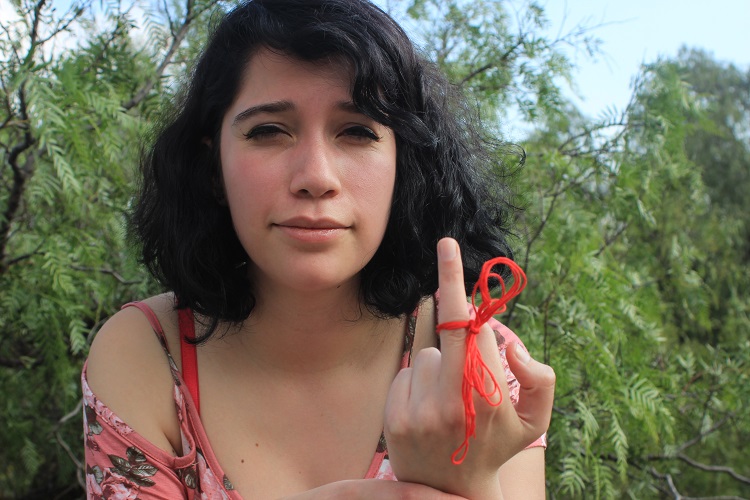Dating is already a deeply personal and sometimes challenging journey. When combined with unique experiences such as living with an STD (Sexually Transmitted Disease) and being part of the deaf community, the challenges and triumphs of love take on a whole new meaning. This article explores how people in the deaf community navigate dating with STDs, while still finding love, belonging, and acceptance.
It highlights the importance of communication, understanding, and creating supportive spaces for relationships that thrive despite stigma.
Understanding Dating with STDs in the Deaf Community
For many people, living with an STD can feel like carrying a hidden burden. When you also belong to the deaf community, the layers of communication barriers, stigma, and cultural nuances make dating more complex. But it is equally important to recognize that both deaf identity and STD status do not define a person’s worthiness for love.
In fact, many deaf individuals who live with STDs are building strong, loving, and fulfilling relationships. The intersection of these experiences requires humanized conversations—acknowledging the vulnerability, challenges, and resilience of people who want what everyone: love and belonging.
By talking openly about dating with STDs in the deaf community, society can break stereotypes, encourage acceptance, and build pathways for deeper connections.
The Importance of Humanizing Relationships
When we humanize dating experiences, we step away from stereotypes and step into empathy. Deaf individuals living with STDs are not defined by medical terms or disabilities; they are people with dreams, emotions, and desires for meaningful relationships.
Often, the stigma around STDs paints an image of fear or judgment. Similarly, deafness has historically been misunderstood or marginalized. Bringing these two realities together means some people face double stigma, making love and belonging feel out of reach. But humanizing relationships means seeing the whole person, not just their labels.
This approach empowers both deaf and hearing partners to build trust and intimacy, creating space where acceptance replaces judgment.
Communication and Trust: The Core of Dating
Communication is central to every relationship, but in the deaf community, it takes on a more intentional form. Dating with STDs adds another layer of communication needs, particularly around disclosure, safe practices, and emotional honesty.
Deaf individuals may use sign language, written communication, or technology to connect with partners. Sharing information about STDs in a clear, respectful, and non-judgmental way is essential. Many couples discover that these conversations actually strengthen trust, because being open about something so vulnerable builds a foundation of honesty.
Trust grows when partners recognize that love is not limited by hearing ability or health status, but by the effort invested in understanding one another.
Navigating Stigma in the Deaf Community
Stigma around STDs remains one of the biggest challenges in dating. In the deaf community, where social circles may feel smaller, fear of gossip or judgment can intensify. This makes disclosure difficult, leaving some individuals feeling isolated.
Yet, awareness and education are slowly changing the narrative. Deaf advocacy groups, health organizations, and community leaders are pushing for more inclusive conversations about sexual health. By making STD awareness accessible in sign language and deaf-friendly formats, stigma begins to fade, replaced by knowledge and compassion.
When stigma is reduced, dating becomes less about hiding and more about celebrating love and belonging.
Belonging and Identity in Relationships
Belonging is a universal human need, and for deaf individuals with STDs, it can sometimes feel like a distant dream. But identity plays a powerful role here. When someone embraces both their deafness and STD status as part of their life—not as limitations but as experiences—they open the door to deeper connections.
Partners who accept these realities create safe spaces for belonging. Love in the deaf community is often rooted in shared experiences, cultural pride, and mutual respect. When combined with honesty about STDs, relationships gain depth because they are built on authenticity rather than pretense.
The Role of Support Networks
Support networks play a vital role in helping deaf individuals navigate dating with STDs. Friends, family, deaf organizations, and even online communities provide reassurance and advice. These networks remind people that they are not alone—that their journey of love and belonging is shared by others who understand.
Many deaf-friendly support groups focus on sexual health education, relationship advice, and emotional well-being. Having such networks reduces shame and boosts confidence, encouraging people to pursue meaningful relationships without fear of rejection.
Online Dating for the Deaf Community with STDs
The rise of online dating has created new opportunities for deaf individuals, particularly those living with STDs. Platforms designed for the deaf community, as well as STD-friendly dating sites, allow people to connect more openly without stigma.
These digital spaces empower individuals to disclose their health status comfortably and find partners who understand their journey. Many deaf singles discover that online dating helps filter out judgmental attitudes, leaving room for genuine connections based on shared values and respect.
This combination of accessibility and openness creates a powerful bridge toward belonging in modern relationships.
Safe Dating Practices and Sexual Health
Dating with STDs requires responsible practices, regardless of whether someone is deaf or hearing. Open conversations about safe sex, testing, and healthcare are essential to protect both partners. For the deaf community, having these resources available in sign language or deaf-friendly educational tools makes a huge difference.
Safe dating practices are not only about physical health—they also promote emotional security. When partners are proactive about sexual health, they build a relationship rooted in care and respect. This ensures that love thrives without unnecessary fear or misunderstandings.
Building Confidence and Self-Love
Confidence plays a big role in dating success. Deaf individuals with STDs may struggle with self-doubt, worrying about whether potential partners will accept them. Building self-love is the first step toward changing this mindset.
Embracing one’s identity, therapy or counseling, and joining supportive communities can help rebuild confidence. When people see themselves as worthy of love, they project positivity that attracts partners who respect and cherish them.
Confidence becomes the bridge between fear and belonging, reminding individuals that love is possible, no matter their circumstances.
Breaking Cultural and Social Barriers
Culture plays an important role in how the deaf community approaches dating with STDs. In some countries, discussing sexual health openly remains taboo, making disclosure more difficult. But breaking these barriers is crucial for creating safe and loving relationships.
Deaf advocates are working to normalize conversations about sexual health, not just in medical spaces but also in dating and community discussions. When culture evolves to embrace openness and compassion, individuals feel freer to pursue relationships without fear of being judged.
The Future of Dating in the Deaf Community with STDs
The future looks promising. With more awareness campaigns, digital platforms, and support systems tailored for deaf individuals, dating with STDs is becoming less stigmatized. Technology continues to improve accessibility, offering tools like video chats with sign language interpreters, STD-friendly dating apps, and educational platforms.
As society grows more inclusive, the vision for the future is clear: a world where deaf individuals with STDs can pursue love and belonging without barriers, and where relationships are celebrated for their authenticity.
Conclusion: Love and Belonging Beyond Labels
Dating With STDs In the deaf community is not about limitations, it is about possibilities. By humanizing relationships, breaking stigma, and embracing honesty, love becomes accessible to everyone. Belonging is not found in perfection but in acceptance.
Deaf individuals with STDs are rewriting the story of dating by showing that health conditions and communication differences cannot diminish the human need for love. Instead, they remind us all that relationships thrive when rooted in respect, honesty, and compassion.
In the end, love and belonging are not defined by labels but by the courage to embrace one another fully.




